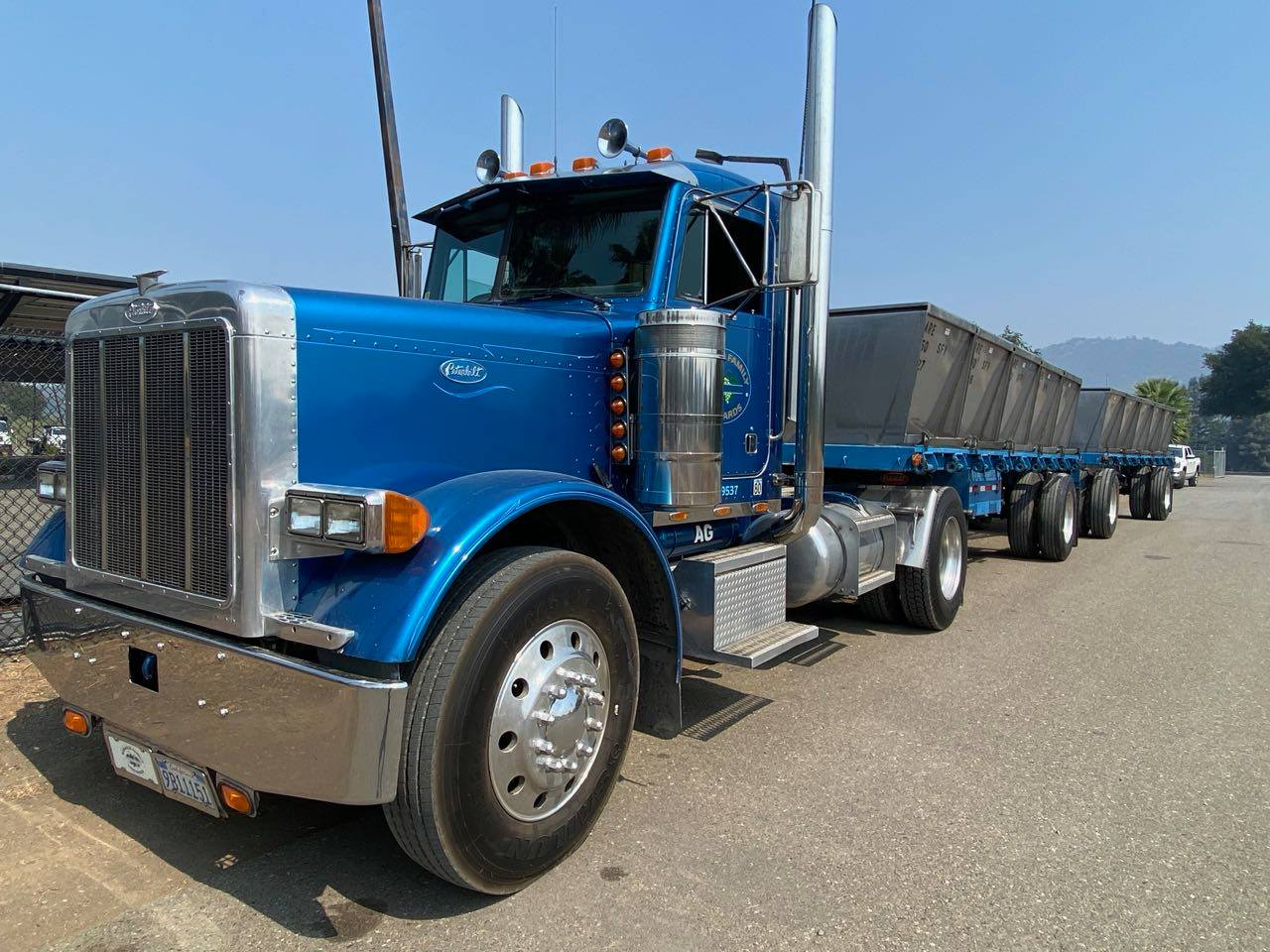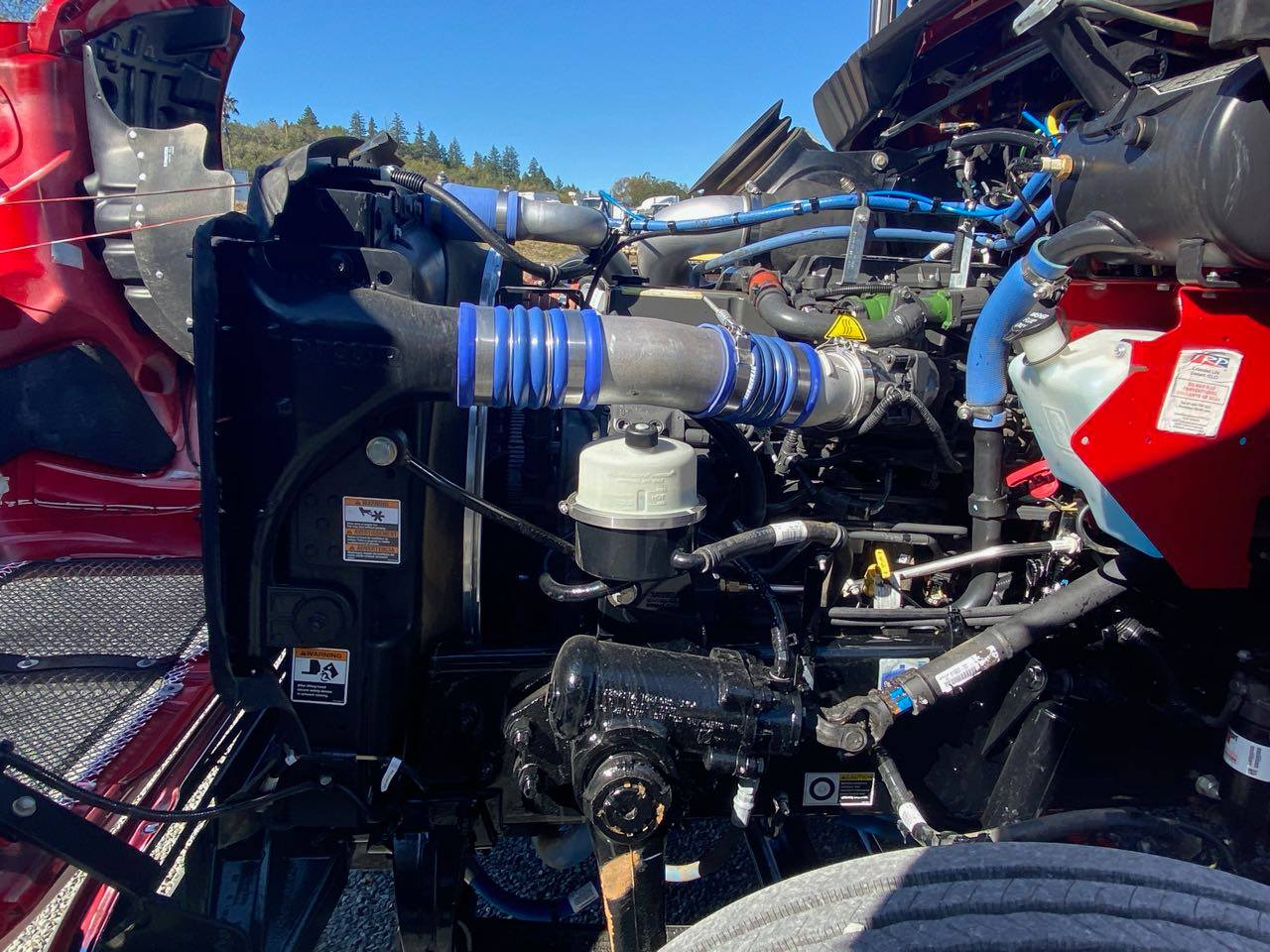Top Seven Frequently Asked Questions About Used Semi-Trucks

7 Most FAQs About Used Semi-Trucks
Below are the top seven Frequently Asked Questions (FAQs) we receive at Charter Trucks. Whether you are new to the trucking business or simply interested in big rigs, we hope you find this article informative.
-
How much do semi-truck drivers make?
For many years, truck drivers have been overworked and under appreciated, but recent events, such as supply issues have highlighted the value of American truckers. As of today, experienced drivers are hard to replace and in high demand.
At one time $40,000 – $80,000 was considered a decent wage for trucking companies to be paying their drivers. Today, many companies are paying well over $100,000 and taking good care of their drivers with incentives and benefits to keep retention high.
How long will semi-truck drivers enjoy this newfound power and respect?
We hope the trend is a long and prosperous one.

Pro Tip: Continue to add value to yourself by providing hauling for more difficult types of freight like heavy equipment and oversize loads that need to be tarped properly. A professional driver is more than driving the truck. It is also about being able to secure the load and navigate the elements.
-
What is the best way to buy used semi-trucks?
Buying a used semi-truck is a different process from buying a new one, and one of the biggest differences is the mileage. There are different types of mileage, long haul, local or off-road applications as well.
A new truck will have little to no mileage, while a used one will likely have accumulated hundreds of thousands of miles. In most cases, the higher the mileage, the more wear and tear the truck will have endured. But experienced truckers know a big rig’s condition can not always be related to mileage.
A 1,000,000-mile vehicle could have less wear and tear than a 500,000-mile semi-truck that has been abused by bad roads, climate, or poor maintenance.
Whether it’s a low-mileage truck or a million-mile truck, it’s crucial to consider the truck’s maintenance history and to have it thoroughly inspected by a qualified mechanic before making a purchase.
Want to learn more on how to purchase a used Heavy Duty Truck? 5 Tips to Buying a Used Semi-Truck

-
What is the average engine lifespan for semi diesel trucks?
While experienced drivers today are quick to point out that the engines of yesteryear were far superior, the truth is today’s engines last much longer.
When old-school truckers talk about how the new engines don’t last, they’re not referring to the lifespan of the engine itself, but rather to the difficulty of working on and maintaining the modern engines.
There was a time when drivers made their own roadside repairs. If your truck was overheating, you had the tools and the skill to replace your thermostat or adjust your engine’s idle.
Shop mechanics used to rebuild engines themselves, but today most shop mechanics are relegated to changing engine oil, oil filters, part replacements, and other smaller repairs.
As a general rule today,
a semi-truck engine can last over 1,000,000 miles. However, if your semi-truck has not been well maintained, we see engines being rebuilt with less than 500,000 miles on them.
Unfortunately, the components that are attached to the engines, that help clean up the air, as well as sensors and electronics can make that 1,000,000-mile lifespan crazy expensive.
While technology has improved both the A and B life of today’s truck engines, whether the typical semi-truck today is more reliable is up for debate.
What’s one thing all experienced drivers can agree on that will make make a semi-truck last longer?
Regular maintenance from day 1 of your purchase.
If you are running a diesel engine semi-truck and want to reach the million mile mark, make sure you do the routine maintenance.
A semi-truck needs to have regular service. This includes oil changes, tire rotations, and regular servicing of your emissions systems. And believe it or not, keeping your truck clean should be considered routine maintenance.
Fun Fact: 3 Million Miles in the Same Semi-Truck
William Coe, Jr., of Tallahassee, Florida was honored in 2009 for driving 3,001,276 miles safely in the same commercial truck. Coe started driving trucks in February 1986 and at the time of the record, had not had a single preventable accident for 23 years.
-
Does a semi-truck diesel engine or gasoline engine last longer?
One of the most important factors that can affect a semi-truck’s lifespan and fuel efficiency is the type of engine it has. Today diesel engines are most often used in semi-trucks and are known for their durability and fuel efficiency. Gasoline engines are less common in semi-trucks and typically have a shorter lifespan and lower fuel efficiency.
Advantages of using A Diesel Engine vs A Gas Engine
- Fuel Efficiency
- Durability and Longevity
- Lower Fire Risk
- Higher Torque
- Resale Value
Disadvantages of Diesel engines
- Higher Upfront Costs
- Cold Weather Starting
- More Complicated Emission Systems (Translation – more expensive to maintain)
-
What’s a good mileage for a used semi-truck?
-
Most heavy duty diesel semi-trucks have fuel tanks with capacities between 100 and 300 gallons. Fuel efficiency can range from 4 to 8 MPG depending on the engine and driving conditions.
Using an average of 6 MPG, a truck with a 200-gallon fuel tank could travel approximately 1,200 miles on one tank of gas. However, this number can vary greatly depending on factors such as the terrain, driving conditions, and the weight of the load being transported.
A diesel semi-truck engine may get only 3 MPG pulling a load uphill and get nearly 15-20 miles per gallon downhill.
How important is good fuel economy for an owner operator? An increase of 1 mile per gallon at today’s gas prices for a driver who runs 50,000 miles a year, will save them $5,000 or more.
Fuel-Saving Quick Tips
- Keep Idling To a Minimum: Idling with even the best diesel engines gets you zero MPG.
- Slow Down: Maintaining a consistent speed and using cruise control can help save fuel.
- Maintain Proper Tire Pressure: Keeping your tires inflated to the recommended pressure can improve your fuel economy. Low tire pressure can increase rolling resistance and decrease fuel efficiency.
- Maintenance: Regular maintenance will not only save fuel, it will also reduce costly repairs.
- Aerodynamics: Side skirting for both truck and trailer, cab deflectors reduce drag and increase fuel efficiency.
-
How many miles does an average truck driver drive a year?
-
It all depends.
The average semi-truck driver who runs locally or regionally will tend to have lower mileages and shorter driving hours than your long haul drivers.
A high mileage long haul driver from a large fleet can put in excess of 75,0000 – 100,000 miles on their truck in a year. But, it is not unheard of for the drivers who enjoy the open road to put in over 120,000 miles in a year.
-
What is a CDL?
A CDL is a commercial driver’s license.
This license allows you to operate commercial vehicles including semi-trucks. Truckers with a CDL have more options and opportunities for employment.
The process to receive your CDL takes time. Your course of training could take weeks or several months.

Interested in driving a semi-truck?
If you are interested in driving a big rig, here are a few other things to consider.
Will you be an employee or a 1099 contractor? It may be attractive to say a contractor because they pay a few extra bucks, but do the math first.
Are you an ice road trucker who loves challenging road conditions or would you like to drive a low miles, local route? Many drivers want to know how long their semi-truck will last. But, how long will you last driving? Know your limits.
How many miles do you want to drive a year? This goes hand and hand with the question above, but be realistic. The more you drive, the more wear and tear you encounter.
Can you handle the long hours? Long hours, mean time away from your family and friends. What are you willing to sacrifice to be out on the road?
What type of semi-truck do you want to get behind the wheel of? Do you like the heavy hauls (highest paid), tanker trucks, heavy duty dump trucks, or would you prefer being on the open road in an aerodynamic sleeper?
Ask around to see if the company you are going to work at provides reliable semi-trucks. A truck’s condition should not be overlooked.
A reliable semi-truck will reduce your stress level. If they provide higher mileage trucks, ask about their maintenance program.
Whether you are hauling light or heavy loads, or a low or high mileage semi-truck, no one wants to spend their day on the side of the road waiting for a service truck.
Can you drive a manual transmission? Seems like a silly question ten years ago, but if you don’t know how to drive a manual 10, 12, or 18-speed transmission, you may limit your career potential.
Are you up for physically demanding work? There are drivers who pick up a load and drop it off. They are called “drop and hook” loads. However, many driving jobs entail serious physical activity, oftentimes repetitive during the day.
Be sure you are physically able to perform the job before you accept an offer.
We hope this article gave you a better insight into the working life of a driver. There are many outstanding opportunities for drivers today.
We at Charter Trucks wish you the best of luck.
